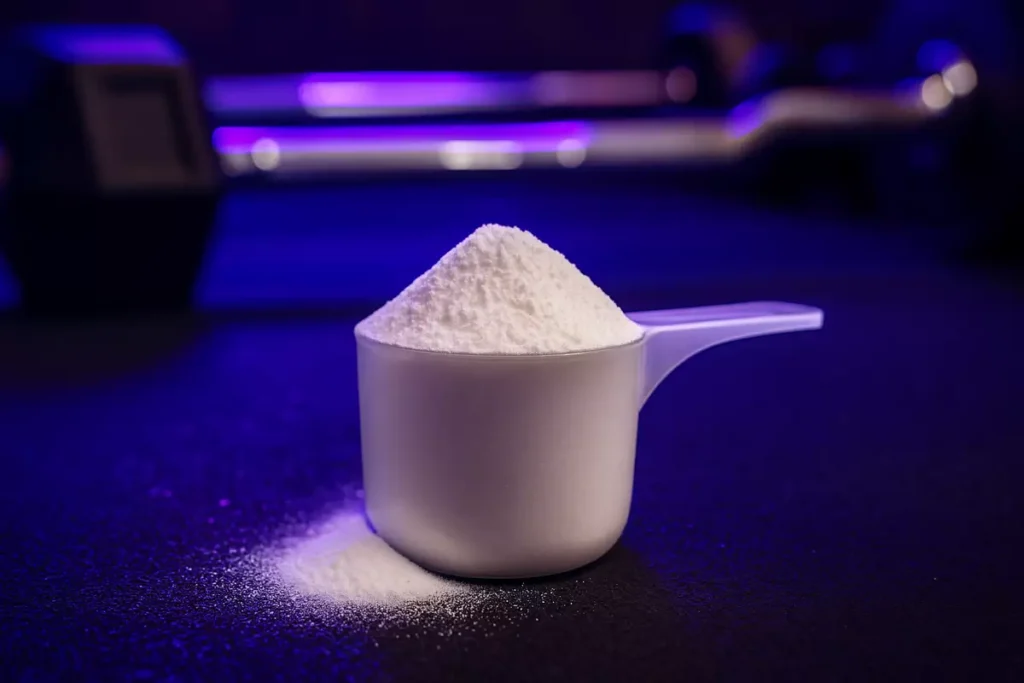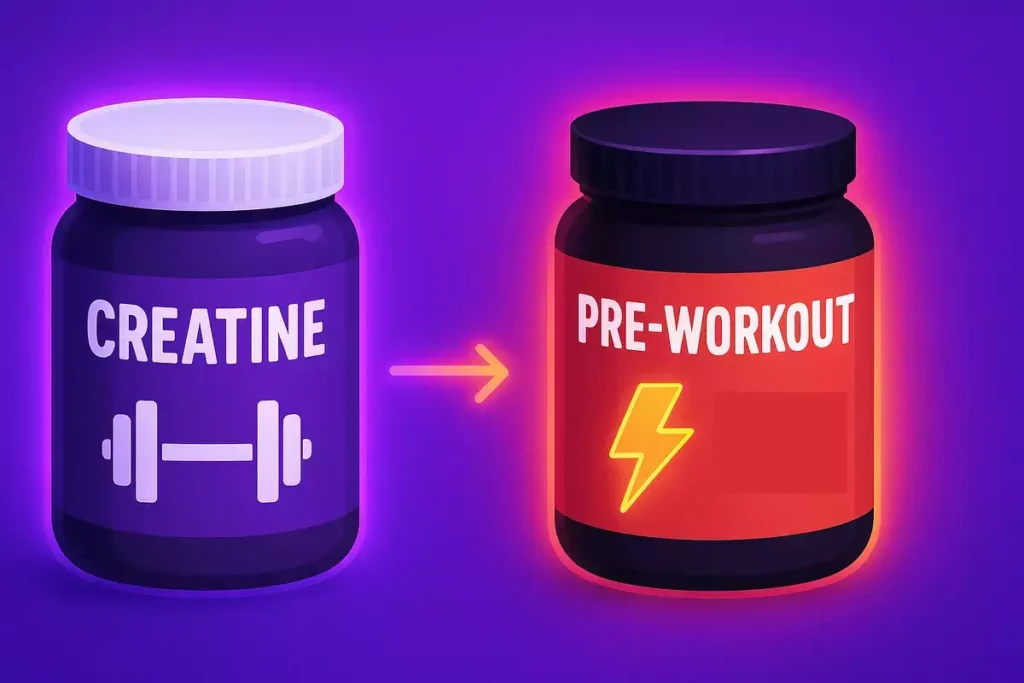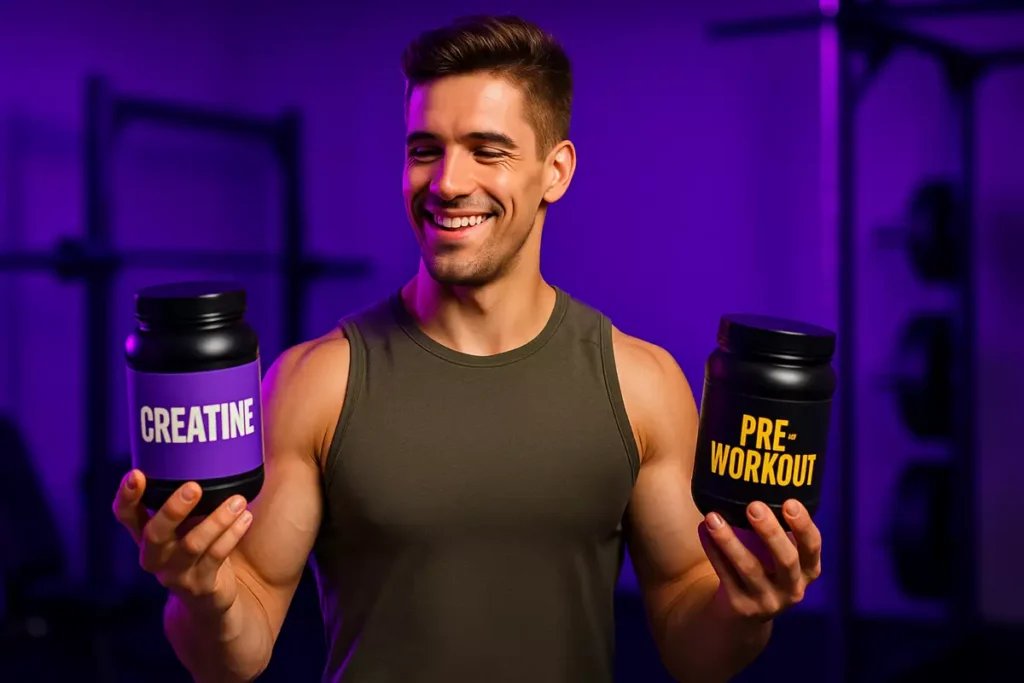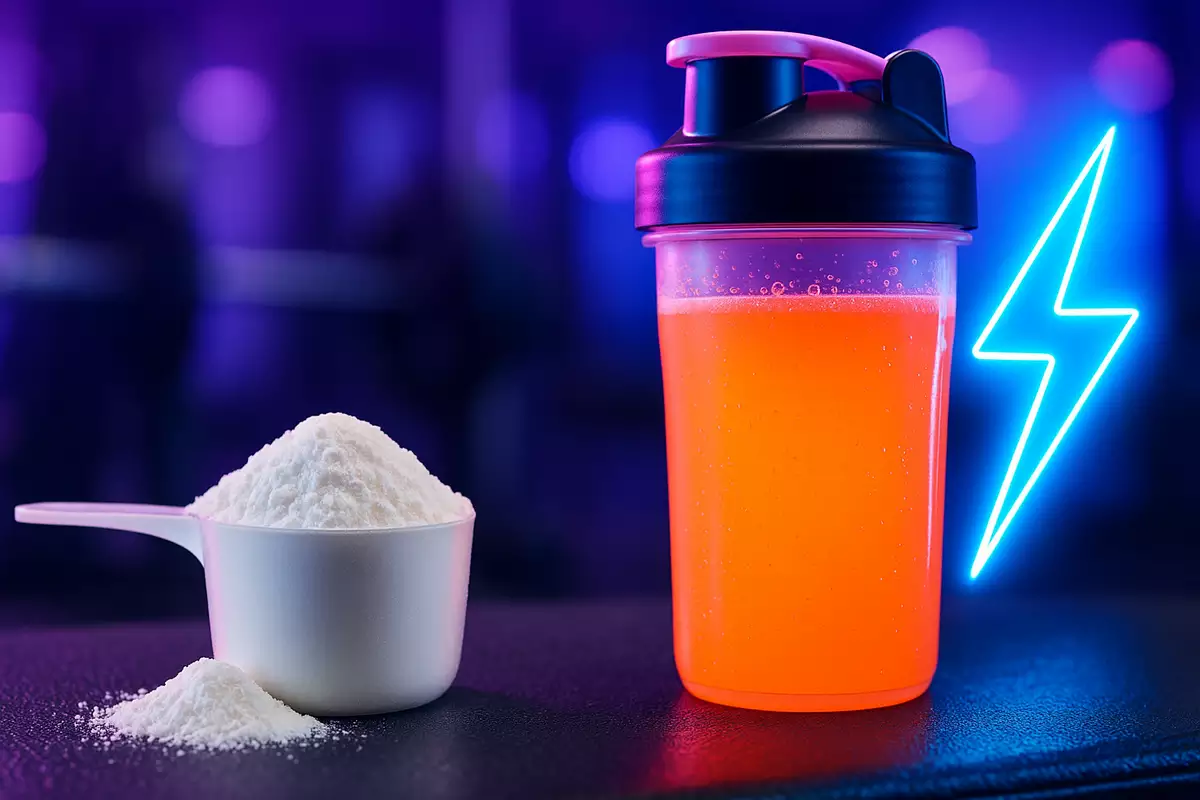Struggling to choose between creatine monohydrate and pre-workout supplements? You’re not alone — and the answer isn’t one-size-fits-all.
Both can elevate your training, but they serve totally different purposes. One fuels long-term strength and muscle gains. The other? Immediate energy, focus, and insane pumps.
As a pro fitness coach, I’ve tested both on myself and my clients. Let me break it down — with real results, not hype.
Table of contents
Creatine vs Pre-Workout — Quick Answer
If you’re standing in front of the supplement shelf wondering “Should I take creatine or pre-workout?” — you’re not alone.
Both are insanely popular, both are performance boosters, and yet they work very differently.
Here’s the short answer:
If your main goal is long-term strength, muscle growth, and recovery, creatine monohydrate is the king.
If you’re looking for immediate energy, laser focus, and a serious pump, a pre-workout supplement will give you that edge.
But the real magic? Sometimes, it makes sense to use both — smartly. Let’s dive deeper.
What Is Creatine Monohydrate?

Creatine is one of the most researched and effective supplements for strength athletes and bodybuilders.
It helps your muscles produce more ATP — your body’s energy currency — especially during short, intense bursts of effort like heavy lifting or sprinting.
Personally, I added creatine around year 4 of my training. I noticed bigger lifts, fuller muscles, and improved endurance in my later sets.
And trust me, when you’re grinding through a heavy leg day, that extra rep or two makes a big difference.
One of my clients, Jonas — a 28-year-old software engineer — started taking 5g of creatine daily.
Within 4 weeks, he went from struggling with 85 kg deadlifts to confidently pulling 95 kg. He didn’t change anything else in his training — just added creatine.
Want to understand when results kick in? Here’s a full breakdown: Creatine Monohydrate Results Timeline »
You can also explore how creatine supports more than just muscle — like creatine’s brain health benefits »
And if you’re wondering which type is better, check out this guide: Micronized vs Regular Creatine »
What Is a Pre-Workout Supplement?
Pre-workouts are designed to get you fired up for your workout.
They usually contain a mix of ingredients like:
- Caffeine – for energy and focus
- Beta-Alanine – for endurance and tingles (yes, that itchy face is normal!)
- Citrulline Malate – for better blood flow and muscle pumps
- Sometimes creatine, but not always in a clinically effective dose
I’ve used brands like C4 and Total War over the years, especially when I needed a boost for early morning or low-energy sessions.
They work — no question. But they’re not magic.
They give you that kick, but they don’t build strength or muscle on their own.
For example, Zara — one of my beginner clients — started using a light pre-workout with 100mg caffeine.
It helped her stay consistent with evening training after long workdays. Within 8 weeks, she built the habit so well that she stopped needing the pre altogether.
Want to dive into the synergy (and potential clashes) between caffeine and creatine? Here’s what you need:
Creatine and Caffeine Interaction Guide »
Key Differences Between Creatine and Pre-Workout

Feature | Creatine Monohydrate | Pre-Workout Supplement |
|---|---|---|
Goal | Muscle strength & recovery | Energy, focus, and pump |
Timing | Daily (any time) | 20–30 mins before workout |
Main Benefit | Long-term performance | Immediate workout boost |
Effect Duration | Ongoing with consistent use | Short-lived (1–3 hours) |
Side Effects | Mild water retention | Jitters, crash, sleep issues |
It’s like comparing slow-cooked gains vs instant motivation.
Both have a place — depending on your need.
And if you’re trying to build muscle without creatine at all, this article can help:
Build Muscle Without Creatine »
Should You Take Both Together?
In most cases, yes — they work great together.
I’ve personally stacked a daily 5g creatine dose with a basic pre-workout before tough leg sessions or PR days.
The combo gives me lasting energy, better performance, and faster recovery.
A client of mine, David — a 22-year-old college athlete — was stuck on his 90 kg bench for weeks.
We added daily creatine and a simple pre-workout stack. Six weeks later, he was repping 100 kg.
Just be sure to stay hydrated and avoid double-dosing creatine if your pre-workout already contains it.
Also, if you’re mixing your creatine with juice for better absorption, here’s what you need to know:
Mix Creatine with Juice Guide »
And for nighttime recovery stacks, see:
Creatine + Casein Stack Benefits »
Which One Should You Choose?

Here’s my advice based on your fitness level:
- If you’re a beginner, start with creatine. It’s safe, effective, and builds a foundation of strength.
- If you’re more advanced, and your workouts are long or intense, pre-workouts can give you that extra mental and physical push.
- If your goal is fat loss, go easy on high-stim pre-workouts. You don’t want to burn out your nervous system.
- If your goal is size and strength, creatine is non-negotiable.
Also, consider your lifestyle:
If you’re training late, skip the caffeine-heavy pre-workouts. You don’t want to sacrifice sleep for a pump.
Final Verdict
Both creatine monohydrate and pre-workout supplements have earned their place in a serious athlete’s stack.
But they’re not interchangeable.
If I had to choose just one for long-term results?
Creatine wins — hands down.
But for days when you’re dragging, and need a mental edge to crush your session?
A quality pre-workout can make the difference between skipping and showing up strong.
Use them wisely. Fuel your goals — not just your hype.



Leave a Reply